NSW: Q&A When are Pecuniary Interest Disclosures Required?

Question: If a committee member submits a motion they have a vested interest in, shouldn’t they abstain from voting? Should the strata manager enforce this?
Regarding the issue of a Strata Committee Member proposing a motion to the Strata Committee that they have a vested interest in, which constitutes a breach of conflict of interest: The legislation mentions that there is a maximum penalty of 10 units which as I understand it to be $1,100.00. ($110.00 per penalty unit).
The article is quite interesting but it doesn’t mention how a Lot Owner can instigate this action when a Strata Committee member has breached part 15 of Schedule 2 of the said legislation? Could someone provide the steps required in implementing this course of action?
Also, shouldn’t the Strata Manager have mentioned to the Strata Committee and in particular to the member that they abstain from voting on their motion? What happens if the Strata Manager fails to do so? Are they in breach of their statutory obligations? If so, what would these breaches be under which legislation?
Answer: The strata manager should have raised the conflict but the duty of disclosure lies with the relevant committee member.
- a member of a strata committee has a direct or indirect pecuniary interest in a matter being considered or about to be considered at a meeting, and
- the interest appears to raise a conflict with the proper performance of the member’s duties in relation to the consideration of the matter,the member must, as soon as possible after the relevant facts have come to the member’s knowledge, disclose the nature of the interest at a meeting of the strata committee. Maximum penalty: 10 penalty units.
- A disclosure by a member at a meeting of the strata committee that the member:
- is a member, or is in the employment, of a specified corporation or other body, or
- is a partner, or is in the employment, of a specified person, or
- has some other specified interest relating to a specified corporation or other body or to a specified person,is a sufficient disclosure of the nature of the interest in any matter relating to that corporation or other body or to that person which may arise after the date of the disclosure and which is required to be disclosed under subclause (1).
- Particulars of any disclosure made under this clause must be recorded by the strata committee in a book kept for the purpose and that book must be open at all reasonable hours to inspection by any person on payment of the fee determined by the strata committee.
- After a member has disclosed the nature of an interest in any matter, the member must not, unless the strata committee otherwise determines:
- be present during any deliberation of the strata committee with respect to the matter, or
- take part in any decision of the strata committee with respect to the matter.
- For the purposes of the making of a determination by the strata committee under subclause (4), a member who has a direct or indirect pecuniary interest in a matter to which the disclosure relates must not:
- be present during any deliberation of the strata committee for the purpose of making the determination, or
- take part in the making by the strata committee of the determination.
- A contravention of this clause does not invalidate any decision of the strata committee.
- Without limiting subclause (1), a person has an indirect pecuniary interest in a matter if a person connected with the person has a direct interest in the matter.
For the full question and our detailed response, visit the original publication at Look Up Strata.
Do you have a question relating to your property or development? Contact us!








